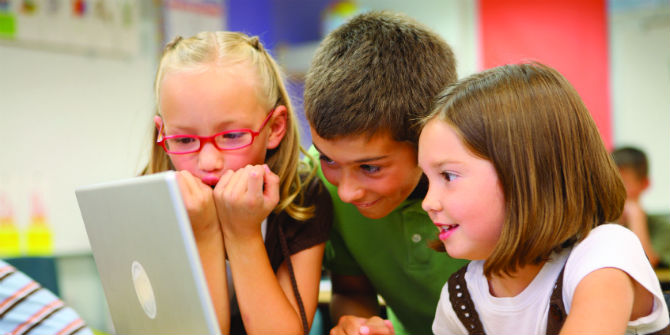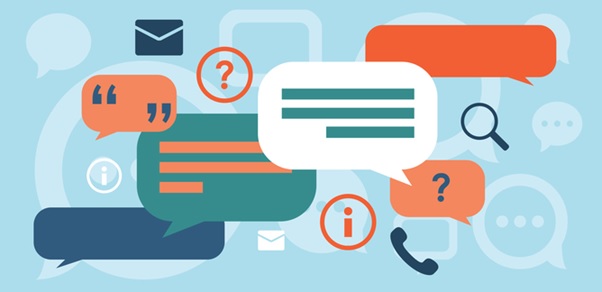 During the COVID-19 pandemic we have seen a huge volume of online misinformation about the disease itself, about its origins, about potential treatments, and about government responses. And especially at a time like this, false health information can be dangerous. Gianfranco Polizzi, PhD researcher at the LSE, offers advice on how to spot misinformation online, based on his conversations with digital experts in the UK.
During the COVID-19 pandemic we have seen a huge volume of online misinformation about the disease itself, about its origins, about potential treatments, and about government responses. And especially at a time like this, false health information can be dangerous. Gianfranco Polizzi, PhD researcher at the LSE, offers advice on how to spot misinformation online, based on his conversations with digital experts in the UK.
Recent political elections and campaigns on the one hand, and the current Covid-19 crisis on the other, have signalled that the general public, both in the UK and beyond, needs digital literacy to navigate the complex information environment in which we live. As misinformation becomes increasingly rampant in the digital age, how do digital experts evaluate online content? From how they fact-check information to how they diversify their exposure to different sources, there is a lot that we can learn from their expertise.
The internet provides us with opportunities for engaging more actively in society. But among its constraints, it amplifies misinformation, which is exacerbated by the algorithms of online platforms that make popular content visible, regardless of whether it is reliable. Their algorithms, in addition, expose users primarily to information that is aligned with what they like and are interested in, which is referred to as the problem of the filter bubble. This problem reinforces the polarisation of public debate. Furthermore, it makes it harder for users to engage with a wide and diverse range of information, which worsens their exposure to misinformation.
So what does it mean to be digitally literate and navigate information critically in the digital age? I thought that recent political events had made it abundantly clear that the public needs digital literacy, which can be defined as the skills and knowledge that are necessary to engage practically and critically with digital technologies. But the spread of Covid-19 has shown, perhaps even more dramatically, that the problem of misinformation is far from resolved.
Covid-19 and fake news
The coronavirus pandemic has forced us to take a step back from our daily routines. As we spend more and more time at home, we increasingly rely on the internet, be that for working remotely or video calling relatives and friends. During times of uncertainty, like the ones we are experiencing, engaging with information that is trustworthy is more important than ever. Ofcom’s latest research shows that almost half of the adult population in the UK has come across misinformation about Covid-19. While 55% “are ignoring false claims about coronavirus”, up to 40% “are finding it hard to know what is true or false about the virus”. Promisingly, more people are turning to trusted sources like the BBC to follow the latest development about the pandemic. At the same time, however, a wealth of false stories has spread online, from conspiracy theories about the origins of the virus to misleading information about treatments. So, what can we do to spot misinformation?
Do what the experts do
In my recent article published in Computers & Education (open access), I examine how digital experts in the UK evaluate online content. I do this to reflect on what digital literacy consists of and how to revise the school curriculum to ensure that children, in particular, can learn digital literacy. By digital experts, I mean those whose professions revolve around the use of digital technologies, including media educators as well as information, IT and media professionals. These individuals have sophisticated digital skills and knowledge, from practical digital skills and an understanding of what the technical features of the internet afford to knowledge about how internet corporations operate, and with what implications for online content. As a result, the question I address in the article is: what can we learn from their expertise?
I will not discuss now how we should revise the school curriculum in light of digital literacy needs, which I have addressed here. Instead, given the current Covid-19 crisis, I thought it would be helpful to share a few practical tips on how to evaluate information online, on the basis of what the experts do. None of the following tips can guarantee, on its own, that you will manage to spot misinformation. But the more steps you take, the more likely you will be to succeed:
- Assess the URL of the websites you visit – does it look reliable? Is the domain associated with official sources (e.g., “.gov”, which stands for “government”)?
- Reflect on the language used on, and the layout of, the website – do they look reliable? Are there many spelling mistakes? Is the content too sensationalist? If the answer to the last two questions is “yes”, then you might need to be particularly suspicious.
- How much do you know about the topic? Reflect on the boundaries of your own knowledge. If you do not know enough, ask somebody you trust, who might be more knowledgeable than you are. Or check accredited sources, including news media like the BBC.
- Compare and contrast information across multiple sources. Copy and paste key facts and figures from the text into one or more search engines and check whether they appear on other websites, including, again, those of reputable media outlets. If they are not reported elsewhere, or if they sound too unusual, then they are probably false.
- Use the Google Reverse Image Search function to check the origin of photos. This allows you to identify all the websites where a photo was published. Again, reflect on how extensively the photo appears on the web, and in what kind of sources.
- Look beyond the first results on search engines like Google, which organises its results on the basis of what you have browsed in the past and the popularity of websites. Relatedly, use multiple search engines, beyond Google, such as DuckDuckGo.
- Diversify your exposure to information. However comfortable your filter bubble is, make the effort of deliberately following individuals and organisations with opposing views to yours on social media like Facebook and Twitter. This will allow you to come across a wider and more diverse range of sources, which can make it easier to spot misinformation.
- Ultimately, think of accredited media outlets, from the Guardian to the Financial Times, as news media that, despite their biases, follow high standards of professionalism and fact-checking, which makes them reputable. Distinguish their opinion pieces from news stories. And besides news media, familiarise yourself with fact-checking websites like Snopes and Full Fact.
What I learned from talking to the experts is that the digital age requires us to deploy a wealth of digital skills and knowledge in order to evaluate online content. These include functional skills and knowledge about what websites and search engines offer for assessing information, as well as a critical understanding of the digital environment, what sources can be trusted, how internet corporations operate and the implications of filter bubbles. These skills and knowledge enable experts not only to reflect on how reliable the information they come across looks like, but also to more actively fact-check online content and diversify their exposure to different sources.
I do not expect that the only solution to misinformation should be equipping the public with digital literacy. As discussed elsewhere, multiple actors, from online platforms and the media industry, to policymakers and civil society, have different responsibilities to bear. But inasmuch as we all need digital literacy, we should learn from what the experts do.
This article represents the views of the author, and not the position of the Media@LSE blog, nor of the London School of Economics and Political Science.





